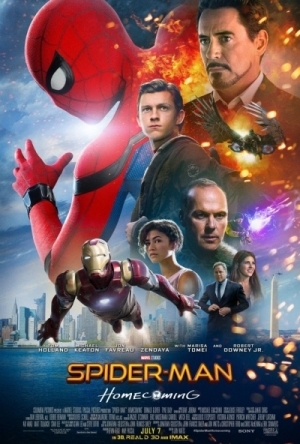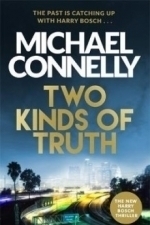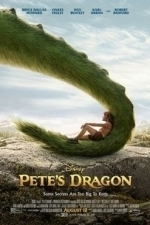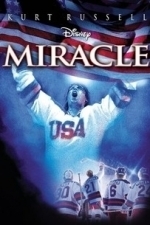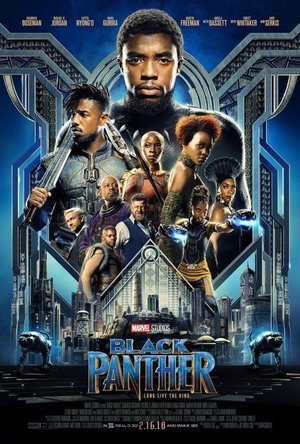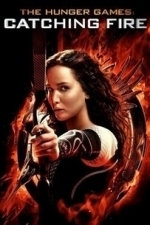Search
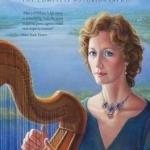
Travels with My Harp: The Complete Autobiography
Book
Mary O'Hara's life story is something only the most inspired press agent could ever hope to concoct'...
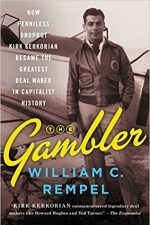
The Gambler: How Penniless Dropout Kirk Kerkorian Became the Greatest Deal Maker in Capitalist History
Book
The rags-to-riches story of one of America’s wealthiest and least-known financial giants,...
biography business
Phillip McSween (751 KP) rated Spider-Man: Homecoming (2017) in Movies
Jan 25, 2021
New Vibes, New Dopeness
When I first saw that Sony was playing nice with Disney/Marvel, I almost lost it when I saw that Spider-Man would make an appearance in Captain America: Civil War. Nerd Moment: I’ve always thought that all of the Marvel properties belonged together and this was a step in the right direction. It’s been amazing what’s happened since. In this third reboot since the new century, Spider-Man: Homecoming is the story of a young Peter Parker handling his role as a teenager and a webslinging superhero.
Acting: 10
Beginning: 7
Characters: 7
Peter (Tom Holland) is a lovable kid surrounded by a fun cast of friends and foes. They took a different and, in my opinion, smarter route by making Aunt May (Marisa Tomei) younger and more relatable. Not only did it pay off but it helped contribute to side jokes in the story involving Happy (Jon Favreau) and Tony Stark (Robert Downey Jr.). Yes, there are so many characters to love here, both familiar and new…that is until we get to the villain played by one of my favorite actors Michael Keaton. Don’t get me wrong, he wasn’t horrible, I just couldn’t buy his motivation which made it hard at times to connect to the overall story and conflict.
Cinematography/Visuals: 10
Watching some of these scenes play out seriously made me wish I was Spider-Man. The aerial combat and clever use of webs is such a treat to watch and experience, both at home. and in the theater. Marvel hit another home run here with cinematic perfection that stretches all over the great city of New York.
Conflict: 10
The conflict isn’t just about Spider-Man fighting bad guys. Rather it’s about having to do all of this and be a kid at the same time…and impress Tony Stark…and get used to his new suit…and keep all of this a secret from his caretaker. So many things wrapped into one makes this such a fun ride. Yes, there is plenty of spider fights to enjoy, but there is so much more to love about the movie as a whole.
Entertainment Value: 9
Memorability: 8
Pace: 10
Plot: 9
Really enjoyed the story and how it plays into the Marvel universe as a whole. A few twists here and there keep things interesting. Again there is so much driving conflict here and character growth that it’s easy to miss the complexities of everything involved in the story. Again, not in love with Vulture’s motivation, but it doesn’t diminish things too badly.
Resolution: 10
Overall: 90
The difficulty of Peter trying to get used to his new suit alone was enough to keep me beaming watching this movie. Marvel movies are known for packing a mega punch and Spider-Man: Homecoming definitely stands up there as one of the stronger ones. Great movie.
Acting: 10
Beginning: 7
Characters: 7
Peter (Tom Holland) is a lovable kid surrounded by a fun cast of friends and foes. They took a different and, in my opinion, smarter route by making Aunt May (Marisa Tomei) younger and more relatable. Not only did it pay off but it helped contribute to side jokes in the story involving Happy (Jon Favreau) and Tony Stark (Robert Downey Jr.). Yes, there are so many characters to love here, both familiar and new…that is until we get to the villain played by one of my favorite actors Michael Keaton. Don’t get me wrong, he wasn’t horrible, I just couldn’t buy his motivation which made it hard at times to connect to the overall story and conflict.
Cinematography/Visuals: 10
Watching some of these scenes play out seriously made me wish I was Spider-Man. The aerial combat and clever use of webs is such a treat to watch and experience, both at home. and in the theater. Marvel hit another home run here with cinematic perfection that stretches all over the great city of New York.
Conflict: 10
The conflict isn’t just about Spider-Man fighting bad guys. Rather it’s about having to do all of this and be a kid at the same time…and impress Tony Stark…and get used to his new suit…and keep all of this a secret from his caretaker. So many things wrapped into one makes this such a fun ride. Yes, there is plenty of spider fights to enjoy, but there is so much more to love about the movie as a whole.
Entertainment Value: 9
Memorability: 8
Pace: 10
Plot: 9
Really enjoyed the story and how it plays into the Marvel universe as a whole. A few twists here and there keep things interesting. Again there is so much driving conflict here and character growth that it’s easy to miss the complexities of everything involved in the story. Again, not in love with Vulture’s motivation, but it doesn’t diminish things too badly.
Resolution: 10
Overall: 90
The difficulty of Peter trying to get used to his new suit alone was enough to keep me beaming watching this movie. Marvel movies are known for packing a mega punch and Spider-Man: Homecoming definitely stands up there as one of the stronger ones. Great movie.

Video Calls with Santa
Lifestyle and Entertainment
App
* #1 CHRISTMAS APP IN AMERICA * * TOTALLY UPDATED FOR 2017 * * TOP 100 IN OVER 50 COUNTRIES * * NO...
Kristy H (1252 KP) rated Two Kinds of Truth (Harry Bosch #20) in Books
Jan 10, 2018
Another wonderful mystery novel featuring Connelly's excellently developed lead detective
Michael Connelly's iconic detective, Harry Bosch, is back again. Harry's basically a volunteer for the San Fernando police department, working cold cases for the tiny force and mentoring their three young detectives. When they are called out for a murder of a father and son at a local pharmacy, Harry assists the inexperienced team in trying to track down the killers. The case leads Harry and his detectives into the dark world of opiates--both the big money of pill mills and the sad, cold side of addiction. Meanwhile, Harry hears from his former employer, the LAPD, when one of his thirty-year-old cases is reopened based on new evidence. Even worse, the killer is claiming Harry framed him. The case threatens Harry's most prized possession: his reputation as a cop, and he knows that no one will fight to clear his name like himself. The two unrelated cases pull at different sides of Bosch as he works to discover all different facets of the truth.
I love Harry Bosch so much, and there will be a hole in my heart when Connelly no longer writes about him. I actually moved this book up in my rotation (something I rarely ever do!) so I could read it on a weekend trip to Chicago, and my only regret is that it meant I finished it in about 48 hours, and now it's over. Per usual, Connelly gives us yet another wonderful mystery novel featuring his excellently developed lead detective. This one covers the timely topic of the opiate crisis, which looms fairly large in America today. It's well-researched, as always.
Reading a Bosch novel is like picking up with an old friend, and this one is no different. Our Bosch is aging, which this book acknowledges well. We see Bosch still grappling with having left the LAPD--who can he trust, what can he do with his life now. We even get some appearances from previous characters in earlier novels. Perhaps the best thing is a fairly large role for Bosch's half brother Mickey Haller, the famed "Lincoln Lawyer." These two are still figuring out their own relationship, but it's a treat for us readers to get a glimpse of Mickey; we even get to see some of his enjoyable courtroom antics. There's even an appearance from Mickey's investigator, Cisco! (See, it's like being old friends!)
And, of course, we can't forget the actual story, which, in usual Connelly style is excellent and tracks along flawlessly along Bosch's own journey. The opiate tale is both fascinating and depressing, while Bosch's unraveling of the backstory behind the reopened cold case will certainly keep you reading. There's never really any crazy twists or turns, but the novel moves along steadily and easily. There's both growth and angst with Bosch--I have to admit, I worry about the end of his arc, but I will still enjoy every moment I get with him until them.
Another enjoyable one for the Bosch canon--certainly recommend!
I love Harry Bosch so much, and there will be a hole in my heart when Connelly no longer writes about him. I actually moved this book up in my rotation (something I rarely ever do!) so I could read it on a weekend trip to Chicago, and my only regret is that it meant I finished it in about 48 hours, and now it's over. Per usual, Connelly gives us yet another wonderful mystery novel featuring his excellently developed lead detective. This one covers the timely topic of the opiate crisis, which looms fairly large in America today. It's well-researched, as always.
Reading a Bosch novel is like picking up with an old friend, and this one is no different. Our Bosch is aging, which this book acknowledges well. We see Bosch still grappling with having left the LAPD--who can he trust, what can he do with his life now. We even get some appearances from previous characters in earlier novels. Perhaps the best thing is a fairly large role for Bosch's half brother Mickey Haller, the famed "Lincoln Lawyer." These two are still figuring out their own relationship, but it's a treat for us readers to get a glimpse of Mickey; we even get to see some of his enjoyable courtroom antics. There's even an appearance from Mickey's investigator, Cisco! (See, it's like being old friends!)
And, of course, we can't forget the actual story, which, in usual Connelly style is excellent and tracks along flawlessly along Bosch's own journey. The opiate tale is both fascinating and depressing, while Bosch's unraveling of the backstory behind the reopened cold case will certainly keep you reading. There's never really any crazy twists or turns, but the novel moves along steadily and easily. There's both growth and angst with Bosch--I have to admit, I worry about the end of his arc, but I will still enjoy every moment I get with him until them.
Another enjoyable one for the Bosch canon--certainly recommend!
Movie Metropolis (309 KP) rated Pete's Dragon (2016) in Movies
Jun 11, 2019
Lovely in every sense of the word
2016 really does belong to Disney. The House of Mouse has been churning out some incredible films this year with the live-action remake of The Jungle Book proving sceptical audiences (and critics) completely wrong.
The BFG was a pleasant and inoffensive adaptation of Roald Dahl’s wonderful novel and Finding Dory got Pixar back on the right track, and let’s not forget Captain America: Civil War, by far the best superhero film of the year.
Here, Disney continues its trend with recreating its classic cartoons in live-action; resurrecting Pete’s Dragon. But is this remake of the 1977 film of the same name as good as The Jungle Book?
Mr. Meacham (Robert Redford), a woodcarver, delights local children with stories of a mysterious dragon that lives deep in the woods of the Pacific Northwest. His daughter Grace (Bryce Dallas Howard) believes these are just tall tales, until she meets Pete (Oakes Fegley), a 10-year-old orphan who says he lives in the woods with a giant, friendly dragon called Elliot. With help from a young girl named Natalie (Oona Laurence), Grace sets out to investigate if this fantastic claim can be true.
Director David Lowery helms the film with a quiet subtlety that automatically makes Pete’s Dragon a very different adaptation to Jon Favreau’s stomping Jungle Book. Here, the joy is in the storytelling rather than popping on a set of nostalgia glasses and settling in for the journey.
Acting wise, it’s a pretty formulaic affair. Bryce Dallas Howard, in her first major role since last year’s smash hit Jurassic World, is as likeable as ever and like the film itself, commands the screen with an understated presence. Elsewhere, Oakes Fegley gives a cracking portrayal of Pete.
Naturally, the main character throughout is Elliot, the big friendly dragon. This bright green behemoth is rendered in wonderful CGI, with each gust of wind lifting his fur beautifully. Considering the film’s modest $65million budget, Elliot is utterly believable in each and every scene.
The lush forest landscape provides a mesmerising backdrop on which to construct a film and David Lowery takes the audience on sweeping journeys across the tree-tops, brilliantly juxtaposed with confined caves and the woodland floor.
Unfortunately, the deforestation side plot is never truly explored with Karl Urban’s underdeveloped “villain” proving to be a slight undoing in this near perfect remake.
Thankfully though, the themes of family, friendship and never giving up despite the odds are explored to their fullest – these are themes that Disney knows how to do better than any other studio and the emotional heart that brings to Pete’s Dragon ensures teary eyes are inevitable.
Overall, Disney has done it again. Just five months after the phenomenal Jungle Book remake, the studio has got it spot on with Pete’s Dragon. The two films couldn’t be further apart, with this one succeeding in its quiet dignity. It is in every sense of the word – lovely.
https://moviemetropolis.net/2016/08/16/lovely-in-every-sense-of-the-word-petes-dragon-review/
The BFG was a pleasant and inoffensive adaptation of Roald Dahl’s wonderful novel and Finding Dory got Pixar back on the right track, and let’s not forget Captain America: Civil War, by far the best superhero film of the year.
Here, Disney continues its trend with recreating its classic cartoons in live-action; resurrecting Pete’s Dragon. But is this remake of the 1977 film of the same name as good as The Jungle Book?
Mr. Meacham (Robert Redford), a woodcarver, delights local children with stories of a mysterious dragon that lives deep in the woods of the Pacific Northwest. His daughter Grace (Bryce Dallas Howard) believes these are just tall tales, until she meets Pete (Oakes Fegley), a 10-year-old orphan who says he lives in the woods with a giant, friendly dragon called Elliot. With help from a young girl named Natalie (Oona Laurence), Grace sets out to investigate if this fantastic claim can be true.
Director David Lowery helms the film with a quiet subtlety that automatically makes Pete’s Dragon a very different adaptation to Jon Favreau’s stomping Jungle Book. Here, the joy is in the storytelling rather than popping on a set of nostalgia glasses and settling in for the journey.
Acting wise, it’s a pretty formulaic affair. Bryce Dallas Howard, in her first major role since last year’s smash hit Jurassic World, is as likeable as ever and like the film itself, commands the screen with an understated presence. Elsewhere, Oakes Fegley gives a cracking portrayal of Pete.
Naturally, the main character throughout is Elliot, the big friendly dragon. This bright green behemoth is rendered in wonderful CGI, with each gust of wind lifting his fur beautifully. Considering the film’s modest $65million budget, Elliot is utterly believable in each and every scene.
The lush forest landscape provides a mesmerising backdrop on which to construct a film and David Lowery takes the audience on sweeping journeys across the tree-tops, brilliantly juxtaposed with confined caves and the woodland floor.
Unfortunately, the deforestation side plot is never truly explored with Karl Urban’s underdeveloped “villain” proving to be a slight undoing in this near perfect remake.
Thankfully though, the themes of family, friendship and never giving up despite the odds are explored to their fullest – these are themes that Disney knows how to do better than any other studio and the emotional heart that brings to Pete’s Dragon ensures teary eyes are inevitable.
Overall, Disney has done it again. Just five months after the phenomenal Jungle Book remake, the studio has got it spot on with Pete’s Dragon. The two films couldn’t be further apart, with this one succeeding in its quiet dignity. It is in every sense of the word – lovely.
https://moviemetropolis.net/2016/08/16/lovely-in-every-sense-of-the-word-petes-dragon-review/
<i>This eBook was provided by the author in exchange for an honest review </i>
After being out of print for sixty years, <i>Ilsa</i>, one of Madeleine L’Engle’s first novels has been republished, giving readers the chance to discover the rare, little known story. L’Engle is recognized as the author of <i>A Wrinkle in Time</i> and a selection of young adult novels, however <i>Ilsa</i> is an example of L’Engle’s ability to pen a much darker story.
Fundamentally a love story, <i>Ilsa</i> is set in America during the first half of the 1900s. Whilst this gives it an historical context to current readers, it would have been the present day when the story was originally published. The narrator, Henry Porcher, first meets the titular character at the age of ten, shortly before his family whisks him away to temporary accommodation many miles away. In this brief introduction, Henry falls in love with Isla, despite her being three years older than him. From this point on, Henry’s mind and heart are filled with thoughts about Ilsa, and is saddened that his family possess antagonistic opinions about her and her father.
Henry and Ilsa come from entirely different backgrounds. The Porcher’s are a large family with an air of superiority, a stark contrast to the humble lodgings of Ilsa and her naturalist father, Dr. Brandes. Whilst Henry’s parents look down on Dr. Brandes, Ilsa views the Porcher’s as rich and biggity. Yet, Henry and Ilsa are happy to be friends – a <i>Romeo and Juliet</i>-esque relationship, unfortunately with romantic attraction only falling on one side.
Despite his hopes, Henry realizes that Ilsa will never be his. By the age of twenty-four, he already feels like a failure, yet he continues to shadow and worship Ilsa without a care to how his life turns out. Henry painstakingly witnesses Ilsa’s transformation from girl to woman, marrying a man who does not deserve her, becoming a mother, a widow, and finally suffering health wise. Forfeiting his chance of career and marriage, Henry experiences the darker side of love, and pays the price of unrequited love.
For a story about love,<i> Ilsa </i>contains no romance or passionate scenes, and once Henry loses his childhood naivety, it begins to become rather dull. The reader will initially anticipate a happy ending, but the lack of a climax reveals that this will not be forthcoming. <i>Ilsa</i> is far more interesting at the beginning of the novel, a time when anything could happen, but becomes increasingly disheartening as it goes along.
Having not read the celebrate author before, I have no idea how <i>Ilsa</i> compares to the more popular of L’Engle’s novels. Personally, I am not impelled to seek out any of her other books, however that does not mean I deem<i> Ilsa</i> terrible. For fans of L’Engle, this book is certainly worth seeking out, particularly this edition, which contains a brief biography and selection of photographs of the author throughout her life.
After being out of print for sixty years, <i>Ilsa</i>, one of Madeleine L’Engle’s first novels has been republished, giving readers the chance to discover the rare, little known story. L’Engle is recognized as the author of <i>A Wrinkle in Time</i> and a selection of young adult novels, however <i>Ilsa</i> is an example of L’Engle’s ability to pen a much darker story.
Fundamentally a love story, <i>Ilsa</i> is set in America during the first half of the 1900s. Whilst this gives it an historical context to current readers, it would have been the present day when the story was originally published. The narrator, Henry Porcher, first meets the titular character at the age of ten, shortly before his family whisks him away to temporary accommodation many miles away. In this brief introduction, Henry falls in love with Isla, despite her being three years older than him. From this point on, Henry’s mind and heart are filled with thoughts about Ilsa, and is saddened that his family possess antagonistic opinions about her and her father.
Henry and Ilsa come from entirely different backgrounds. The Porcher’s are a large family with an air of superiority, a stark contrast to the humble lodgings of Ilsa and her naturalist father, Dr. Brandes. Whilst Henry’s parents look down on Dr. Brandes, Ilsa views the Porcher’s as rich and biggity. Yet, Henry and Ilsa are happy to be friends – a <i>Romeo and Juliet</i>-esque relationship, unfortunately with romantic attraction only falling on one side.
Despite his hopes, Henry realizes that Ilsa will never be his. By the age of twenty-four, he already feels like a failure, yet he continues to shadow and worship Ilsa without a care to how his life turns out. Henry painstakingly witnesses Ilsa’s transformation from girl to woman, marrying a man who does not deserve her, becoming a mother, a widow, and finally suffering health wise. Forfeiting his chance of career and marriage, Henry experiences the darker side of love, and pays the price of unrequited love.
For a story about love,<i> Ilsa </i>contains no romance or passionate scenes, and once Henry loses his childhood naivety, it begins to become rather dull. The reader will initially anticipate a happy ending, but the lack of a climax reveals that this will not be forthcoming. <i>Ilsa</i> is far more interesting at the beginning of the novel, a time when anything could happen, but becomes increasingly disheartening as it goes along.
Having not read the celebrate author before, I have no idea how <i>Ilsa</i> compares to the more popular of L’Engle’s novels. Personally, I am not impelled to seek out any of her other books, however that does not mean I deem<i> Ilsa</i> terrible. For fans of L’Engle, this book is certainly worth seeking out, particularly this edition, which contains a brief biography and selection of photographs of the author throughout her life.
Gareth von Kallenbach (980 KP) rated Miracle (2004) in Movies
Aug 14, 2019
n 1980, America was in a state of transition and turmoil as political events threatened world stability. The Reagan era was just starting but the nation was still trying to deal with economic issues as well as the Iran hostage crisis, and long gas lines.
As if those issues were not enough, the Cold War was still in full swing and tensions had mounted due to the Russian invasion of Afghanistan. Against this backdrop, coach Herb Brooks (Kurt Russell), is busy preparing a team of college Hockey players to represent the United States in the upcoming Winter Olympics.
Since the Olympics were being held in Lake Placid New York, the pressure was on for the U.S. team to make a respectable showing as the Olympic committee did not want the team to be embarrassed in front of the home crowd.
This was a task easier said than done, as the young players would be facing the best the world could throw at them, including the invincible Russian team that had not lost a game in 15 years and had recently handily defeated a team of NHL All Stars. The Russians like many of the teams that the Americans would face had played with each other for years and were like well-oiled machines in comparison to the assembled Americans who had less than a year to prepare.
The early part of the film focuses on the team selection process and Brook’s constant pushing of the team mentally and physically, even when it is to the dismay of his assistant coaches and disdain of his players. The audience is introduced to the players but they are never given much depth as the story focuses on Brooks and his desire to beat the Russians.
The later part of the film deals with the warm up games the team faced and then swings into the Olympics and the march to glory. The games are recreated mainly in highlight format as the focus of the films game recreation is saved for the dramatic and emotional game with the Russians. The action is fast and furious and is very accurate to the actual game itself.
While very emotional and entertaining, much of “Miracle” unfolds like a movie of the week. Russell does a great job as Brooks, but the supporting cast is not given any chance to shine. Patricia Clarkson is wasted in the role of Mrs. Brooks as she is not given much to do other than utter a few lines of encouragement and be the wife by the side of the coach.
All that being said, “Miracle;” is an uplifting and enjoyable look back at arguably the greatest moment in U.S. sports history. The film does stir the emotions and those of us who were old enough to remember the huge shot of patriotic pride that enveloped the land during those magical two weeks and how that team gave a nation renewed hope for the future and made us feel good just when we needed it the most.
As if those issues were not enough, the Cold War was still in full swing and tensions had mounted due to the Russian invasion of Afghanistan. Against this backdrop, coach Herb Brooks (Kurt Russell), is busy preparing a team of college Hockey players to represent the United States in the upcoming Winter Olympics.
Since the Olympics were being held in Lake Placid New York, the pressure was on for the U.S. team to make a respectable showing as the Olympic committee did not want the team to be embarrassed in front of the home crowd.
This was a task easier said than done, as the young players would be facing the best the world could throw at them, including the invincible Russian team that had not lost a game in 15 years and had recently handily defeated a team of NHL All Stars. The Russians like many of the teams that the Americans would face had played with each other for years and were like well-oiled machines in comparison to the assembled Americans who had less than a year to prepare.
The early part of the film focuses on the team selection process and Brook’s constant pushing of the team mentally and physically, even when it is to the dismay of his assistant coaches and disdain of his players. The audience is introduced to the players but they are never given much depth as the story focuses on Brooks and his desire to beat the Russians.
The later part of the film deals with the warm up games the team faced and then swings into the Olympics and the march to glory. The games are recreated mainly in highlight format as the focus of the films game recreation is saved for the dramatic and emotional game with the Russians. The action is fast and furious and is very accurate to the actual game itself.
While very emotional and entertaining, much of “Miracle” unfolds like a movie of the week. Russell does a great job as Brooks, but the supporting cast is not given any chance to shine. Patricia Clarkson is wasted in the role of Mrs. Brooks as she is not given much to do other than utter a few lines of encouragement and be the wife by the side of the coach.
All that being said, “Miracle;” is an uplifting and enjoyable look back at arguably the greatest moment in U.S. sports history. The film does stir the emotions and those of us who were old enough to remember the huge shot of patriotic pride that enveloped the land during those magical two weeks and how that team gave a nation renewed hope for the future and made us feel good just when we needed it the most.
Movie Metropolis (309 KP) rated Black Panther (2018) in Movies
Jun 10, 2019 (Updated Jun 10, 2019)
Is the MCU all out of surprises?
The Marvel Cinematic Universe has become one of the most successful movie franchises ever made, and it’s easy to see why. Featuring incredible actors, up-and-coming directors and that trademark sense of humour, each film in the MCU has something to offer.
That doesn’t mean they’re perfect however. The MCU has a distinct lack of decent villains, strong female characters and characters from ethnic minorities. In the run-up to this year’s Infinity War, Black Panther aims to turn what we know about Marvel on its head. But has it succeeded?
After the death of his father, T’Challa (Chadwick Boseman) returns home to the African nation of Wakanda to take his rightful place as king. When a powerful enemy suddenly reappears, T’Challa’s mettle as king – and as Black Panther – gets tested when he’s drawn into a conflict that puts the fate of Wakanda and the entire world at risk. Faced with treachery and danger, the young king must rally his allies and release the full power of Black Panther to defeat his foes and secure the safety of his people.
The opening sequence of Black Panther is an absolute treat as the audience are given a brief history of Wakanda and the tribes from which it grew. It’s a great montage to kick off a film that’s packed with stunning visuals and gorgeous landscapes, even though some of the special effects are left wanting at times.
Cast wise, this is one of the strongest entries into the MCU. Chadwick Boseman absolutely embodies the young, naïve yet warm T’Challa beautifully and it’s nice to see his character given some reference points after his sudden inclusion in Captain America: Civil War. Elsewhere, Lupita Nyong’o is always a pleasure to see on screen and her love interest to Boseman keeps him grounded over the course of the runtime.
For me the standout character is Danai Gurira’s Okoye, leader of a group of female warriors ordered to protect Wakanda and its king no matter what the cost. She’s certainly not to be messed with and gets a pleasing arc throughout. The script also seems to work best when she’s on screen.
When it comes to the bad guy, director Ryan Coogler (Creed) gets it nearly spot on. After dozens of, shall we say, lacklustre villains, the MCU receives its best yet. Michael B. Jordan’s Killmonger is, despite his ridiculous name, absolutely brilliant. Menacing and oddly charming in equal measure, he does away with the tradition of bizarre villain motives in the MCU. In fact, his motives throughout feel entirely believable and the film feels more grounded because of this.
Coogler does a good job at creating a bustling and vibrant world, even if the special effects can sometimes bring you out of the illusion
Martin Freeman’s Agent Ross is a strange addition to the cast, simply because his character isn’t essential to the plot. Freeman is always a magnetic presence but he really doesn’t have all that much to do. Finally, Andy Serkis reprises his role as arms dealer Ulysses Klaue and is great fun.
Looking at Wakanda itself, Coogler does a good job at creating a bustling and vibrant world, even if the special effects can sometimes bring you out of the illusion. It certainly feels more real than the hollow golden towers of Asgard (something thankfully fixed in last year’s Thor: Ragnarok), and Wakanda is a great addition to the many locations the Marvel Cinematic Universe has created.
So, I’ve mentioned disappointing special effects twice in this review and whilst they aren’t terrible, there are a few occasions where they are a little poor – especially evident in the film’s finale. For all his exciting filming style, Coogler’s shot choices occasionally jar with the uninspiring and lifeless CGI. Some of the landscapes also feel like a brochure for Disney’s upcoming The Lion King live-action remake.
I think it’s time to talk about film politics, because as much as Black Panther is a great addition to the MCU and a fine solo movie in itself, the legacy it will leave on the industry will be absolutely huge. With a majority black cast, strong female characters and a black director, it’s progressive and incredibly brave in its choices.
Any less of a story, director or cast wouldn’t have made it work and despite some poor CGI and slight pacing issues at the start, Black Panther is one of the best solo Marvel movies in years. Bring on Infinity War.
https://moviemetropolis.net/2018/02/15/black-panther-review-is-the-mcu-all-out-of-surprises/
That doesn’t mean they’re perfect however. The MCU has a distinct lack of decent villains, strong female characters and characters from ethnic minorities. In the run-up to this year’s Infinity War, Black Panther aims to turn what we know about Marvel on its head. But has it succeeded?
After the death of his father, T’Challa (Chadwick Boseman) returns home to the African nation of Wakanda to take his rightful place as king. When a powerful enemy suddenly reappears, T’Challa’s mettle as king – and as Black Panther – gets tested when he’s drawn into a conflict that puts the fate of Wakanda and the entire world at risk. Faced with treachery and danger, the young king must rally his allies and release the full power of Black Panther to defeat his foes and secure the safety of his people.
The opening sequence of Black Panther is an absolute treat as the audience are given a brief history of Wakanda and the tribes from which it grew. It’s a great montage to kick off a film that’s packed with stunning visuals and gorgeous landscapes, even though some of the special effects are left wanting at times.
Cast wise, this is one of the strongest entries into the MCU. Chadwick Boseman absolutely embodies the young, naïve yet warm T’Challa beautifully and it’s nice to see his character given some reference points after his sudden inclusion in Captain America: Civil War. Elsewhere, Lupita Nyong’o is always a pleasure to see on screen and her love interest to Boseman keeps him grounded over the course of the runtime.
For me the standout character is Danai Gurira’s Okoye, leader of a group of female warriors ordered to protect Wakanda and its king no matter what the cost. She’s certainly not to be messed with and gets a pleasing arc throughout. The script also seems to work best when she’s on screen.
When it comes to the bad guy, director Ryan Coogler (Creed) gets it nearly spot on. After dozens of, shall we say, lacklustre villains, the MCU receives its best yet. Michael B. Jordan’s Killmonger is, despite his ridiculous name, absolutely brilliant. Menacing and oddly charming in equal measure, he does away with the tradition of bizarre villain motives in the MCU. In fact, his motives throughout feel entirely believable and the film feels more grounded because of this.
Coogler does a good job at creating a bustling and vibrant world, even if the special effects can sometimes bring you out of the illusion
Martin Freeman’s Agent Ross is a strange addition to the cast, simply because his character isn’t essential to the plot. Freeman is always a magnetic presence but he really doesn’t have all that much to do. Finally, Andy Serkis reprises his role as arms dealer Ulysses Klaue and is great fun.
Looking at Wakanda itself, Coogler does a good job at creating a bustling and vibrant world, even if the special effects can sometimes bring you out of the illusion. It certainly feels more real than the hollow golden towers of Asgard (something thankfully fixed in last year’s Thor: Ragnarok), and Wakanda is a great addition to the many locations the Marvel Cinematic Universe has created.
So, I’ve mentioned disappointing special effects twice in this review and whilst they aren’t terrible, there are a few occasions where they are a little poor – especially evident in the film’s finale. For all his exciting filming style, Coogler’s shot choices occasionally jar with the uninspiring and lifeless CGI. Some of the landscapes also feel like a brochure for Disney’s upcoming The Lion King live-action remake.
I think it’s time to talk about film politics, because as much as Black Panther is a great addition to the MCU and a fine solo movie in itself, the legacy it will leave on the industry will be absolutely huge. With a majority black cast, strong female characters and a black director, it’s progressive and incredibly brave in its choices.
Any less of a story, director or cast wouldn’t have made it work and despite some poor CGI and slight pacing issues at the start, Black Panther is one of the best solo Marvel movies in years. Bring on Infinity War.
https://moviemetropolis.net/2018/02/15/black-panther-review-is-the-mcu-all-out-of-surprises/
Movie Metropolis (309 KP) rated The Hunger Games: Catching Fire (2013) in Movies
Jun 10, 2019
The Hunger Games franchise has come at a time that is almost certain to gather box-office success. After Harry Potter finished two years ago and The Twilight Saga bowed out just 12 months ago, teenagers and young adults have been craving for a new series of blockbusters to ‘sink their teeth into’.
The first film of this new dawn, based on Suzanne Collins’ successful book, was released in March last year and greeted with warm reviews and a staggering box-office performance, a gross just shy of $700m to be a little more precise.
However, rumoured tensions between director Gary Ross and studio Color Force meant that despite its impressive takings, he was not to helm its sequel, Catching Fire. Taking over from him is Francis Lawrence, director of I am Legend, Constantine and Water for Elephants, but can he better what preceded him?
The series centres around an annual ‘games’, in which people aged between 12 and 18 must fight to the death in a custom made arena, leaving only one victor, who is showered with riches for the rest of their lives.
Jennifer Lawrence, returning to the series after her first Oscar win this year, plays Katniss Everdeen, a plucky young teen who fresh from winning the previous Hunger Games tournament alongside her beau Peeta Mellark, played by Josh Hutcherson, travel through the land of Panem (a post-apocalyptic America) to spread their story and persuade others to take part in the vicious tournament.
However, after angering the Capitol, run by cold-hearted President Snow (Donald Sutherland) who becomes increasingly concerned that an up-rising is brewing, it is decided that previous victors must once again take part, to show that even they are not above the law.
For those fresh to the series, I warn you not to watch this film without seeing the first, as much of the plot will be near incomprehensible and your enjoyment will suffer as a result.
The film starts slowly, giving enough backstory before the inevitable return to the arena. Thankfully despite its large running time of 146 minutes, it never falters and after allowing the audience to see how the world has changed, it is back into the new and improved arena for the 75th Hunger Games.
Gone is the shaky handy-cam of director Gary Ross, and in its place we are treated to sweeping shots of numerous landscapes; from the coal-mining community of District 12, to the bright lights of the Capitol and even the large arena which has been given a radical overhaul to make it even more challenging than ever.
The acting is simply sublime by all accounts. Jennifer Lawrence, fresh from the honour of an Oscar plays Katniss with such a subtle grace that she is mesmerising to watch, a real treat for fans of J-Law and of course Suzanne Collins’ character. Liam Hemsworth returns to the series as Katniss’ secret love interest Gale, but he is sorely underused. Josh Hutcherson’s Peeta Mellark is as irritating as ever and lacks a backbone, but this is more to do with the script than Hutcherson’s abilities as an actor.
Woody Harrelson, Elizabeth Banks, Stanley Tucci also return, with the latter being a real stand-out in a film which is filled with quirky and unusual characters.
Those of you who have read my review of the previous film will know that I wasn’t a fan of its lacklustre special effects. Thankfully my prayers were answered and due to a budget that has almost doubled, the effects are glorious. The Capitol is perhaps the best use of the CGI, where the first film looked like a Star Wars: Episode I rip-off, here we really feel like the city is living and breathing for the very first time.
Unfortunately, it seems like the special effects team are still struggling with CGI fire as the computer generated flames are still laughable in their realism.
At 146 minutes, Catching Fire was always going to numb your backside, but you don’t care, the film is an absolute treat to watch. Director Francis Lawrence has retained the violent nature of the series despite its ridiculous 12A certification and manages to get around those limitations with style and flair.
Yes, if I was pushed I’d say it was a little over-long, the CGI flames still look ridiculous and the ending is far too abrupt, but if those are the only faults I can find in a film, then clearly it is more than worth the increasingly expensive price of a cinema admission ticket.
https://moviemetropolis.net/2013/11/23/hunger-games-catching-fire-review/
The first film of this new dawn, based on Suzanne Collins’ successful book, was released in March last year and greeted with warm reviews and a staggering box-office performance, a gross just shy of $700m to be a little more precise.
However, rumoured tensions between director Gary Ross and studio Color Force meant that despite its impressive takings, he was not to helm its sequel, Catching Fire. Taking over from him is Francis Lawrence, director of I am Legend, Constantine and Water for Elephants, but can he better what preceded him?
The series centres around an annual ‘games’, in which people aged between 12 and 18 must fight to the death in a custom made arena, leaving only one victor, who is showered with riches for the rest of their lives.
Jennifer Lawrence, returning to the series after her first Oscar win this year, plays Katniss Everdeen, a plucky young teen who fresh from winning the previous Hunger Games tournament alongside her beau Peeta Mellark, played by Josh Hutcherson, travel through the land of Panem (a post-apocalyptic America) to spread their story and persuade others to take part in the vicious tournament.
However, after angering the Capitol, run by cold-hearted President Snow (Donald Sutherland) who becomes increasingly concerned that an up-rising is brewing, it is decided that previous victors must once again take part, to show that even they are not above the law.
For those fresh to the series, I warn you not to watch this film without seeing the first, as much of the plot will be near incomprehensible and your enjoyment will suffer as a result.
The film starts slowly, giving enough backstory before the inevitable return to the arena. Thankfully despite its large running time of 146 minutes, it never falters and after allowing the audience to see how the world has changed, it is back into the new and improved arena for the 75th Hunger Games.
Gone is the shaky handy-cam of director Gary Ross, and in its place we are treated to sweeping shots of numerous landscapes; from the coal-mining community of District 12, to the bright lights of the Capitol and even the large arena which has been given a radical overhaul to make it even more challenging than ever.
The acting is simply sublime by all accounts. Jennifer Lawrence, fresh from the honour of an Oscar plays Katniss with such a subtle grace that she is mesmerising to watch, a real treat for fans of J-Law and of course Suzanne Collins’ character. Liam Hemsworth returns to the series as Katniss’ secret love interest Gale, but he is sorely underused. Josh Hutcherson’s Peeta Mellark is as irritating as ever and lacks a backbone, but this is more to do with the script than Hutcherson’s abilities as an actor.
Woody Harrelson, Elizabeth Banks, Stanley Tucci also return, with the latter being a real stand-out in a film which is filled with quirky and unusual characters.
Those of you who have read my review of the previous film will know that I wasn’t a fan of its lacklustre special effects. Thankfully my prayers were answered and due to a budget that has almost doubled, the effects are glorious. The Capitol is perhaps the best use of the CGI, where the first film looked like a Star Wars: Episode I rip-off, here we really feel like the city is living and breathing for the very first time.
Unfortunately, it seems like the special effects team are still struggling with CGI fire as the computer generated flames are still laughable in their realism.
At 146 minutes, Catching Fire was always going to numb your backside, but you don’t care, the film is an absolute treat to watch. Director Francis Lawrence has retained the violent nature of the series despite its ridiculous 12A certification and manages to get around those limitations with style and flair.
Yes, if I was pushed I’d say it was a little over-long, the CGI flames still look ridiculous and the ending is far too abrupt, but if those are the only faults I can find in a film, then clearly it is more than worth the increasingly expensive price of a cinema admission ticket.
https://moviemetropolis.net/2013/11/23/hunger-games-catching-fire-review/
